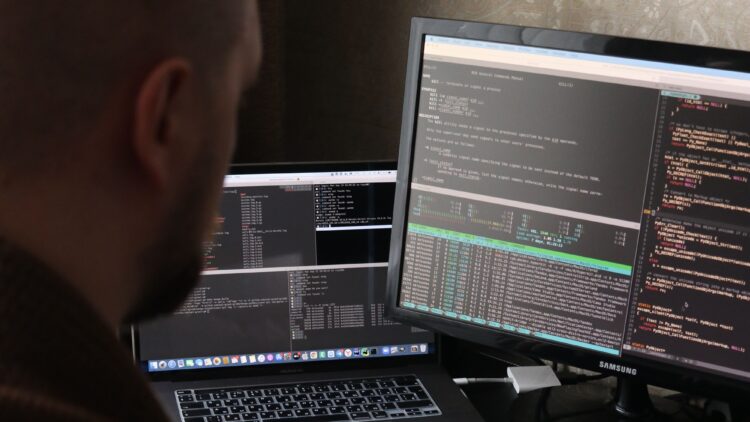Since the beginning of Russia’s recent attempts at invading Ukraine , we’ve slowly seen the world come together to provide what resources it can. Not just parliamentary officials either, but regular, everyday people showing up for those in crisis.
This is no more evident than in Ukraine’s ‘IT Army, consisting of volunteers from around the world contributing in whatever digital fashion they can, be it hacking Russian sites or spreading aid resources.
In February, Ukraine’s Vice Prime Minister reached out to the masses on Twitter.
Mykhailo Fedorov, who is also the country’s Minister of Digital Transformation, posted a link to a group on the messaging app Telegram, informing people that they were making an ‘IT Army’ and saying they needed digital talents.
Over 300,000 people joined, and not just from Ukraine either.

Kali, using a fake name as not to be identified, is a teenager from Switzerland who saw the call and decided to join.
“I wanted to help and use my attacking skills to help Ukraine,” he told The Guardian via Telegram. “I’m from Switzerland, but I’m a strong hacker and I’m so sorry for every Ukrainian. I do it because I stand with Ukraine and I want to help somehow. I think if we hack Russia’s infrastructure they will stop, maybe, because nothing will work anymore.”
Enrique, also using a fake name, is a Lithuanian IT expert in his mid-30s.

He said he felt that joining the group was “the right thing to do”.
“Growing up with your parents telling you stories about how they were exiled to Siberia lives with you your whole life, we are scared that we will be next,” he said.
“I hope the world can put pressure on Russian people so much that they would be willing to re-evaluate their upbringing, understand that people are asking them to help, look at what is really happening and perhaps they will rise up that way.”
They’re only two of the hundreds of thousands of people who joined.

And with such a large force, everyone is working on something different.
Whether they’re coordinating DDoS attacks on Russian government sites, creating counter-propaganda media and distributing it to Russians, or creating websites that detail how to help Ukraine from abroad, everyone is doing their part.
Their efforts are working, too.

According to NetBlocks, a company that monitors global internet connectivity and web traffic, the IT army’s attacks have been successful.
“The crowdsourced attacks have been successful in disrupting Russian government and state-backed media websites,” says Alp Toker, the director of NetBlocks. He also added that Russia’s attempts to counter the hackers have only caused more disruption.
It’s another display of the world coming together to help Ukraine in its time of need.

As the country’s own IT workers, of which there are approximately 290,000 , join the military, people across the globe have shown up in their place to handle the digital battlegrounds.
They’re all helping to contribute how they can with what backgrounds they bring, and their help has surely been immeasurable in Ukraine’s fight against Russian forces.
h/t: The Guardian

















































